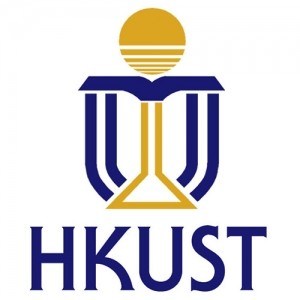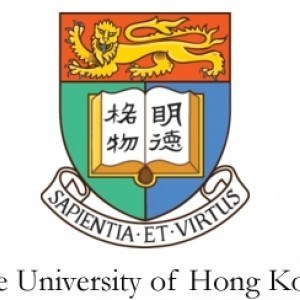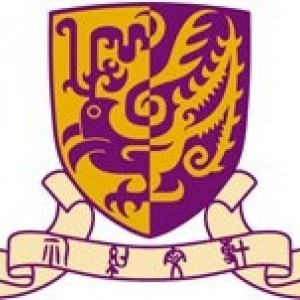Photos of university / #hkust
The Bachelor of Science in Nano Science and Technology at The Hong Kong University of Science and Technology offers students an interdisciplinary education at the forefront of scientific innovation. This innovative undergraduate program is designed to equip students with a comprehensive understanding of the fundamental principles of nanoscience, nanotechnology, and their applications across a wide range of industries including electronics, materials science, medicine, and environmental science. Through a rigorous curriculum that combines coursework, laboratory work, and research opportunities, students gain practical skills in manipulating matter at the atomic and molecular scale, developing novel nanomaterials, and understanding the underlying physical, chemical, and biological principles that govern nanoscale phenomena. The program emphasizes critical thinking, problem-solving, and experimental techniques, preparing graduates for careers in research, industry, or further academic study. Students will also engage in cutting-edge projects and collaborations with industry partners, ensuring they are well-versed in current trends and technological advances. With access to state-of-the-art laboratories and equipment, the program fosters an environment of innovation and inquiry. Graduates of the Nano Science and Technology program are poised to become leaders in emerging fields such as nanoelectronics, nanomedicine, and sustainable nanotechnologies, contributing to technological advancement and societal well-being. The program also offers opportunities for international exchange and internships, broadening students' global perspectives and professional networks. Overall, the Bachelor of Science in Nano Science and Technology at HKUST provides a solid foundation in both theoretical knowledge and practical skills, empowering students to excel in a rapidly evolving scientific landscape and make meaningful contributions to science and industry.
- Students admitted with a bachelor’s degree only are required to complete at least 15 credits of postgraduate courses, of which at least 6 credits must be from the NANO courses. Full-time students are expected to complete the coursework requirements during their first four regular terms of study; MPhil/PhD in Nano Science and Technology
- Students entering the program with a relevant master’s or equivalent degree may be granted credit transfer of up to 6 credits based on their background in the related subject areas, subject to prior approval from the Program Director. Students must complete at least 3 credits of NANO courses. Students’ course selection must be agreed by their thesis supervisors and approved by their respective Thesis Supervision Committee;
- Completion of and passing LIFS/ CHEM/ MATH/ PHYS 6770 Professional Development in Science (Life Science/ Chemistry/ Mathematics/ Physics). Students are expected to complete the course requirements in their first year of study. The maximum time allowed for course completion is two years for full-time students, or three years for part-time students. The 2 credits earned from LIFS/ CHEM/ MATH/ PHYS 6770 cannot be counted toward the credit requirements. HKUST MPhil (NSNT) graduates who have taken and passed this course before may be exempted from this requirement, subject to prior approval from the Program Director;
- Students are required to complete and pass LANG 5010 Postgraduate English for Science Studies, which should be taken in the first year of study. The 1 credit earned from LANG 5010 cannot be counted toward the credit requirements. HKUST MPhil graduates may be considered for exemption from this requirement;
- Students must pass a qualifying examination specified by the Qualifying Examination Committee of the NANO postgraduate program;
- Registration in NANO 7990 Doctoral Thesis Research; and
- Presentation and oral defense of the PhD thesis.
Requirements
- Obtained a bachelor’s degree with a proven record of outstanding performance from a recognized institution; OR presented evidence of satisfactory work at the postgraduate level on a full-time basis for at least one year, or on a part-time basis for at least two years;
- Satisfied the specific requirements prescribed by the school and department concerned as to their chosen subject of research, as well as their fitness to undertake the research.
- You will fulfill the English Language requirements with one of the following proficiency attainments:TOEFL-iBT 80, TOEFL PBT 550, IELTS Overall score: 6.0
- You are required to nominate 2-5 referees to support your application. Upon your application submission, the referees will be invited by email to complete a reference report online. Referees may attach additional reference letters to the online report if they wish to.
- Remember that you will need to send official documents to substantiate your qualifications/ exam results after accepting an admission offer.
Scholarships
- Hong Kong PhD Fellowship Scheme (HKPFS)
- Postgraduate Studentships
The Bachelor of Science in Nanoscience and Technology at The Hong Kong University of Science and Technology offers students a comprehensive education in the emerging field of nanoscience, which focuses on the manipulation and understanding of matter at an atomic and molecular scale. This interdisciplinary programme combines fundamental courses in physics, chemistry, biology, and engineering to provide students with a robust understanding of the principles underlying nanomaterials, nanofabrication techniques, and their practical applications across various industries such as electronics, medicine, energy, and environment. The curriculum is designed to blend theoretical knowledge with practical laboratory experience, enabling students to develop essential skills in nanoscale characterization, synthesis, and device fabrication.
Throughout the programme, students have opportunities to engage in cutting-edge research projects, often collaborating with faculty members who are leaders in the field of nanotechnology. The university emphasizes experiential learning, offering state-of-the-art laboratories equipped with advanced instrumentation like electron microscopes, atomic force microscopes, and cleanroom facilities. Students are encouraged to participate in internships and cooperative education programmes, which provide real-world industrial exposure and networking opportunities.
The programme also emphasizes innovation and entrepreneurship, preparing graduates to contribute to the development of new nanotech-based products and to pursue advanced studies or research careers. Courses are regularly updated to reflect the latest developments in nanoscience and technology, ensuring that students are well-informed of current trends and future directions in the field. Graduates of this programme are equipped with versatile skills suitable for careers in research and development, manufacturing, healthcare, environmental monitoring, and other high-tech sectors. Overall, the Bachelor of Science in Nanoscience and Technology at HKUST aims to produce well-rounded professionals who can leverage nanotechnology to solve real-world problems and drive technological innovation.


